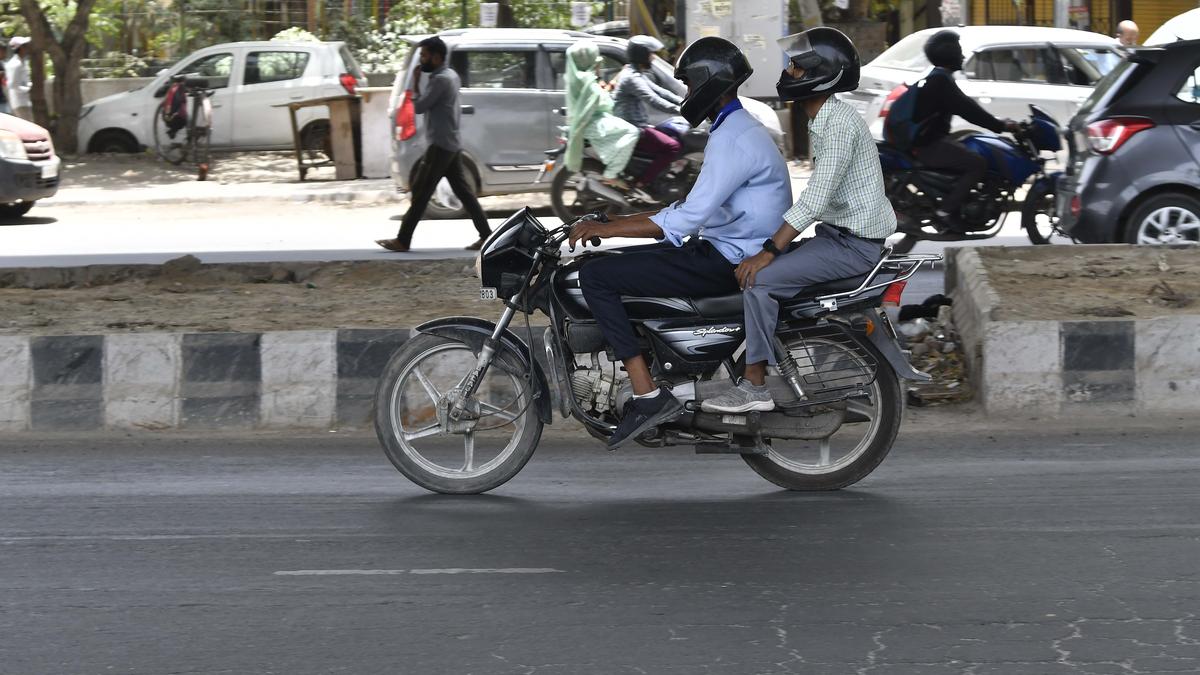
The Centre’s framework requires aggregators to meet government-set targets for inclusion of electric fleets.
| Photo Credit: File photo
The Delhi government is likely to implement the Centre’s new bike taxi policy that permits ride-hailing apps to use “non-transport motorcycles” in the Capital.
Senior officials said the State is considering adopting the July 1 regulatory framework of the Ministry of Road Transport and Highways (MoRTH) to issue licences and regulate aggregators. In 2023, the then Aam Aadmi Party-led government introduced the Delhi Motor Vehicle Aggregator and Delivery Service Provider Scheme, which allowed private two-wheelers for commercial use only if they were electric.
Officials said that unlike the earlier government, the current BJP-led government favours a phased transition. “Unlike the previous policy on bike taxis, we intend on taking the route of a gradual transition to electric vehicles,” one senior officer said.
The Centre’s framework requires aggregators to meet government-set targets for the inclusion of electric fleets. These will be determined by State authorities or agencies regulating air quality. States have three months to adopt the policy.
Safety concerns
The lack of regulation continues to raise safety risks. On July 21, a woman shared a viral video of herself falling off a bike taxi after being denied a helmet. A check by The Hindu revealed that many bike taxi riders operate battery-fitted bikes without helmets. Police stated that such vehicles, classified under GSR 29 (E), are not considered motor vehicles under the Motor Vehicles Act, rendering the helmet rules unenforceable.
“The electric bikes available for rent are used widely by gig workers for delivery purposes. Owing to the classification, the traffic and vehicle rules applicable to motor bikes do not apply to them,” said the officer.
Traffic violations
Traffic police said bike taxis often create chaos by taking wrong turns, riding on the wrong side, and causing jams. Unlike delivery workers identifiable by bags, bike taxi riders are difficult to track as their vehicles lack identifiers.
Dr. Rahul Goel of IIT-Delhi said a phased transition to an electric fleet is essential to avoid wastage of vehicles and market distortions from sudden regulation shifts. “This will ensure that the vehicles already being used are not mindlessly dumped, artificially reducing their lifespan; it will also give enough time to the fleet owners to plan their purchases,” he said.
Dr. Goel added that the Motor Vehicles Act needs updating so that battery-fitted bikes can be linked to individuals, ensuring accountability for violations. “In China, where battery electric vehicles have grown to be a part of the public transportation system, these vehicles without number plates have been linked to individuals to hold them accountable,” he said.
He cautioned that policy design must also address gendered safety concerns. “Unlike covered four-wheelers with SOS features, two-wheeler taxis expose women riders to higher risks in a country like India. Policymakers must imagine how to address the issue, considering India is unlike Thailand, where bike taxis operate in large numbers and are prominently used by women without safety concerns,” he added.
Published – August 25, 2025 01:28 am IST





















